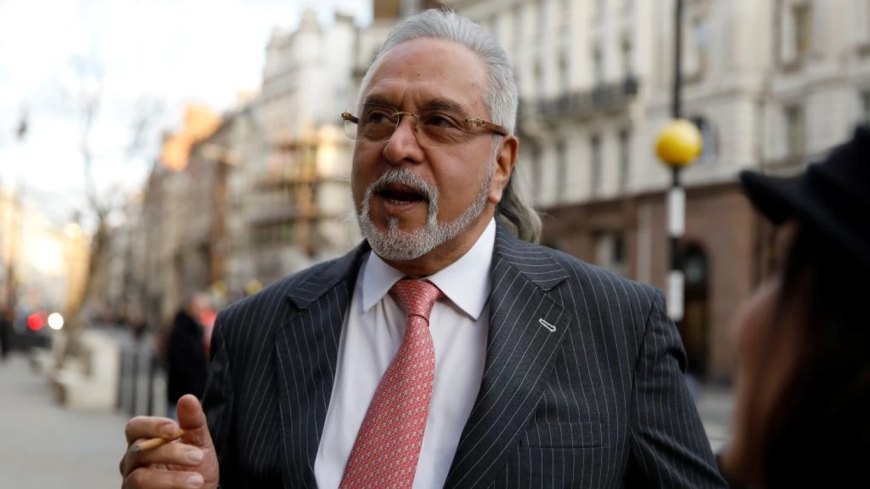The Rise and Fall of Vijay Mallya: From Business Tycoon to Global Legal Dispute
Discover how Vijay Mallya rose to global fame as a business mogul, faced banking scrutiny, and entered a long-standing legal battle over loan defaults and asset recovery.

Vijay Mallya, once celebrated as the "King of Good Times," is a name that evokes both admiration and controversy in India’s corporate landscape. Known for his extravagant lifestyle and high-profile ventures, he transformed the United Breweries Group into a global force and launched the luxurious Kingfisher Airlines. But within a few years, he found himself embroiled in a protracted financial and legal controversy with Indian banks.
This article examines Mallya’s meteoric rise, the financial turbulence that followed, the complex actions by Indian banks, and the evolving legal situation involving repayment and asset recovery.
The Rise of Vijay Mallya
Inheriting a Business Legacy
Vijay Mallya took charge of United Breweries Group in 1983 after the passing of his father, Vittal Mallya. Under his leadership, the group diversified into pharmaceuticals, real estate, fertilizers, aviation, and media.
His most recognizable achievement was the transformation of Kingfisher Beer into a global brand. Its premium positioning and youthful marketing won over urban consumers across Asia, Europe, and Africa.
Kingfisher Airlines: A Grand Vision
In 2005, Mallya entered aviation with the launch of Kingfisher Airlines, offering premium services that elevated India’s airline industry. Stylish crew, in-flight entertainment, and gourmet meals made Kingfisher an aspirational brand.
By acquiring Air Deccan in 2007, Kingfisher expanded into budget travel and international routes. However, the move overstretched the company financially, as operating costs ballooned and losses mounted.
Related: Kingfisher Airlines Business Model – Harvard Business Review Case Study
The Collapse: A Brewing Crisis
Financial Mismanagement and Rising Debts
By 2012, Kingfisher Airlines had ceased operations, with accumulated losses exceeding ₹7,000 crore. It owed dues to employees, airports, oil companies, and a consortium of 17 Indian banks. Many of these loans were granted on the strength of Mallya’s personal and corporate guarantees, without sufficient collateral.
As defaults mounted, India’s largest public and private banks were left exposed to one of the country’s most high-profile non-performing asset (NPA) cases.
Indian Banks Take Action
Formation of the Lender Consortium
Led by State Bank of India, a consortium of banks initiated legal action in India and the UK to recover their dues. They argued that Mallya had personally guaranteed loans and should be held financially responsible.
Multiple courts granted orders to attach Mallya’s domestic and overseas assets. Key holdings in United Breweries and other listed entities were liquidated by enforcement agencies to repay outstanding loans.
Related: Business Standard on Loan Recovery from Mallya’s Assets
Criticism Over Selective Enforcement
Many financial analysts and journalists questioned why Mallya faced such focused legal action when several other defaulters had evaded scrutiny. Was he being singled out due to his media profile and political context?
Moreover, internal audits suggested that some banks had approved loans without proper due diligence or adequate risk assessment, raising concerns about their role in enabling the financial collapse.
Read More: Parliament Debates on Wilful Defaulters – The Hindu
Recovery Exceeds Dues: Mallya Seeks Refund
Banks Recover More Than Loan Amount
As of 2021, the Indian banks’ consortium had recovered over ₹13,000 crore, surpassing the principal loan amount of ₹9,000 crore. The excess recovery came through asset seizures, stake sales, and overseas legal settlements.
This significant milestone shifted the narrative from "default" to "overcompensation." Experts noted that enforcement agencies had succeeded in securing financial justice—at least from a monetary standpoint.
Mallya’s Legal Effort to Reclaim the Surplus
In response, Mallya launched a legal effort seeking return of the surplus funds. His team filed representations in UK courts and other jurisdictions, arguing that continued seizures were unjust once the principal and interest had been repaid.
In various interviews, he maintained that he never intended to defraud lenders and had been open to settlement. His request now focuses on a formal audit of recoveries and potential reimbursement of surplus proceeds.
Where Vijay Mallya Stands Today
Vijay Mallya currently resides in the United Kingdom, where he continues to contest India’s extradition request. UK courts had initially approved extradition, but the final handover has been delayed by additional legal proceedings. Mallya maintains that he is cooperating with authorities and is not evading justice, but seeking fair treatment under global legal norms.
His businesses in India have been largely dissolved, though he retains investments abroad. Despite the controversies, he remains a polarising figure—respected by some for his business acumen and blamed by others for corporate recklessness.
More: Vijay Mallya's Perspective – The Guardian Interview
Conclusion
Vijay Mallya’s journey from celebrated business magnate to central figure in a global legal and financial controversy is layered with ambition, risk, miscalculation, and systemic failure. While Indian banks have largely recovered their dues—and more—questions about fair enforcement, overreach, and due process continue to shape the debate.
His ongoing legal efforts to reclaim excess recoveries introduce new dimensions to the story. As India continues reforming its banking and insolvency laws, the Mallya case serves as both a milestone in recovery enforcement and a reminder of the importance of transparency and balance in financial justice.








